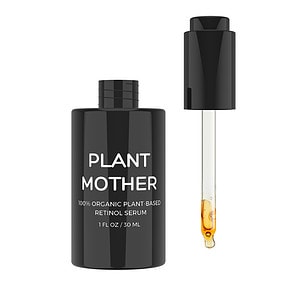Experiencing Bad Tretinoin Side Effects? You’re Not Alone! Here’s What You Can Do
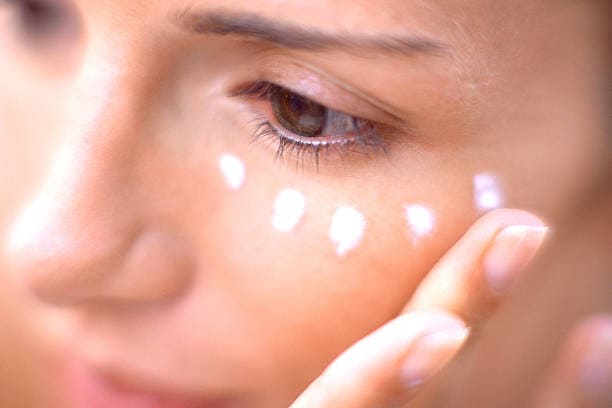
A common question many people ask: is tretinoin a retinol? Although they are similar ingredients, they have their differences. It’d be a misconception to think they’re absolutely the same. Both tretinoin and retinol are a type of retinoid, but tretinoin is a stronger retinoid. Because tretinoin is more robust, it produces faster results compared to retinol, but not without causing sometimes serious tretinoin side effects and temporary skin issues.
Below we will talk about what exactly tretinoin is, the side effects it causes, and tips on taking care of annoying tretinoin purge and irritations.
- What is Tretinoin and Its Main Benefits
- What Are the Most Common Tretinoin Side Effects?
- How To Avoid Tretinoin Side Effects?
- Vegan Alternative That Won’t Cause Tretinoin Side Effects
- Is Tretinoin Really Safe for Everyone?
- Concluding Thoughts
What is Tretinoin And Its Main Benefits
Tretinoin is a form of Vitamin A typically used as a topical cream or gel to treat acne, wrinkles, and other skin issues. It is a retinoid that only a doctor can prescribe. Therefore, tretinoin typically produces more substantial results than retinol. Additionally, tretinoin is a popular prescription retinoid for those with severe acne, acne scars, and those who want to fight their acne outbreaks fast. Finally, many people who have fine lines, wrinkles, and problems with the skin texture turn to tretinoin for quick results.
Tretinoin has many benefits despite being one of the most potent retinoids. Tretinoin works by increasing skin cell turnover and promoting smoother skin. Furthermore, it prevents clogged pores by pushing dirt and bacteria to the skin’s surface.
As an added bonus, you can apply Vitamin C serum in the morning and use tretinoin at night to improve the appearance of the skin. Vitamin C protects the skin against pollution and sun damage while boosting collagen production.
Unfortunately, tretinoin’s benefits often get overshadowed by tretinoin side effects that can range from redness and irritation to an extremely unpleasant and long-lasting tretinoin purge.
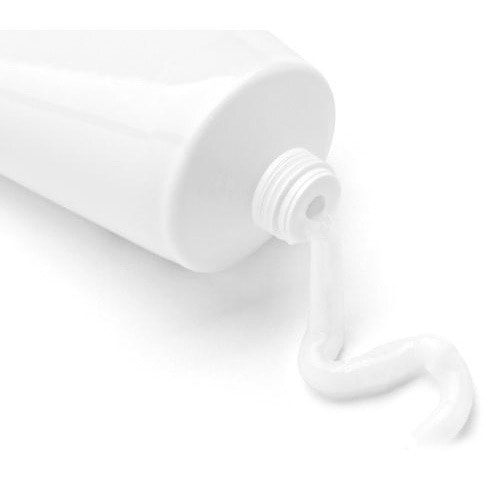
What are The Most Common Tretinoin side effects?
While there are many benefits of using tretinoin as an acne and skin treatment, there are also many unpleasant tretinoin side effects aka retinol uglies. For some types of skin, tretinoin is simply too harsh. Some common side effects include dryness and flaking, sun sensitivity, a mild burning or stinging sensation, and worsening of acne. Sometimes the effects include redness, peeling, and skin purging.
Unfortunately, with treatments that increase cell turnover, acne breakouts and other skin irritations are normal. The skin is purging itself of impurities that are deep under layers of dead skin cells, dirt, and bacteria inside the skin. This is called a tretinoin purge or retinol uglies.
A tretinoin purge is triggered when introducing new tretinoin products to the skin. As stated above, retinoids increase cellular turnover, bringing all the impurities within the skin to the surface. Skin purging is typical when using harsh, prescription-based topical treatments.
Depending on your skin type, tretinoin side effects and purging can last 3-12 weeks (about 3 months) or even more. There are different strengths of tretinoin as well. Therefore, the length of each user’s skin purge will depend on the strength of tretinoin they use, their skin type, how experienced they are with retinoids, among other factors. Some tretinoin users may start to see results in about 4-6 weeks. Others will have acne and breakouts up to 12 weeks, and then the skin will become clear and free of impurities.
Since only doctors can prescribe tretinoin, it is best to consult your dermatologist to determine your correct strength. You may want to start at a lower percentage and adjust as your skin’s barrier becomes stronger after using it for a few weeks. Or you can opt in for vegan retinol and avoid retinol uglies and side affects all together!
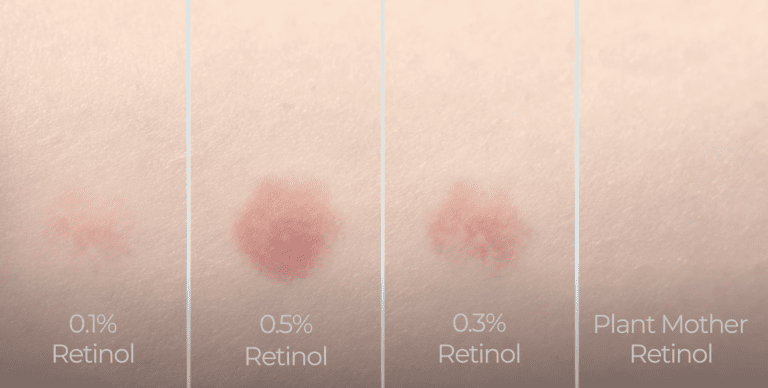
How To Lessen Tretinoin Side Effects?
Skin purging may be challenging to deal with. Moreover, it can cause insecurities, especially when everyone’s obsessed with appearances. But here are a few tips for coping with tretinoin purge:
First, it is best to start at a low strength of tretinoin. Starting low and slow will allow your skin to become used to the harshness of tretinoin and build up your skin’s barrier gradually.
The next tip is to avoid touching your face or picking at your skin. It may be satisfying to pick at the flakiness or dryness of your skin, but it does more harm than good. Picking at or touching your face can make your skin rougher and cause more irritation.
Third, use tretinoin only at night. Tretinoin increases skin sensitivity, especially when it is exposed to the sun. Allowing the skin to heal overnight when using tretinoin will enable the skin to absorb the product thoroughly and lessen some of the annoying tretinoin side effects.
The fourth tip is to avoid using other active ingredients after applying tretinoin. Using active ingredients on top of tretinoin will cause more irritation and will worsen your skin problems. It is recommended not to use anything on top of tretinoin application for at least one hour.
Lastly, use niacinamide with tretinoin. Niacinamide contains Vitamin B3, making it gentle for all skin types. It is an anti-inflammatory, soothes the skin, and reduces redness and irritation. Using tretinoin and niacinamide during the day will improve the appearance of your skin while working together to soothe the irritation. As mentioned above, using niacinamide and Vitamin C in the morning with tretinoin at night will be a powerful trio for your skin in soothing and reducing inflammation.
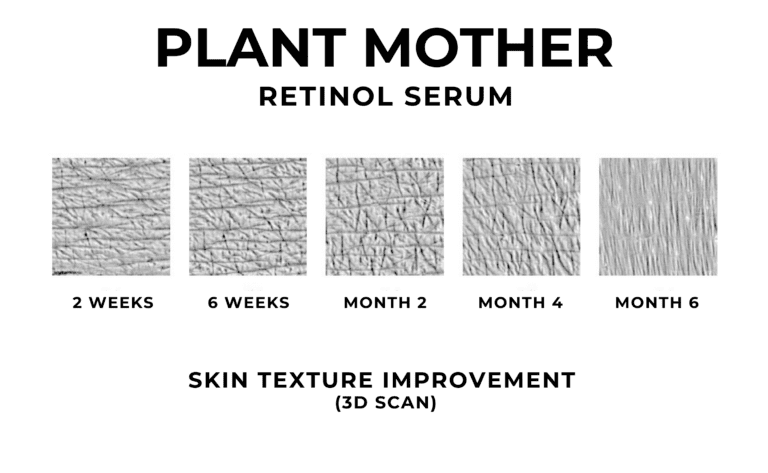
Vegan Alternative To Avoid Tretinoin Side Effects
An alternative to harsh tretinoin is retinol. Similar to tretinoin, retinol also increases cellular turnover, producing collagen in the skin and boosting its rejuvenating powers. As mentioned above, retinol works slightly slower than tretinoin when noticing results, but it is a milder option that won’t cause tretinoin side effects. For this reason, it is essential to know the differences between tretinoin vs retinol.
There are synthetic and vegan retinols in the market. Vegan retinols are the safest options for people with dry and sensitive skin and for those who want to avoid annoying and unpleasant tretinoin side effects. Containing multiple botanicals and packed with antioxidants, vegan retinol consists of proVitamin A while being gentle on the skin. Plant based retinols do not cause irritation or sensitivity, meaning you can apply them any time of day without worry!
One of the best vegan retinols is Plant Mother’s Retinol Serum. It contains bakuchiol (often called botanical botox) and sea buckthorn blended with luxurious rejuvenating botanicals – hibiscus, cloudberry, passion fruit, and prickly pear, to name the few. These plants are rich in antioxidants, omegas, vitamins, and minerals. That’s why Plant Mother’s Retinol serum is extremely nourishing, yet gentle. Additionally, by increasing skin cell turnover, this retinol stimulates collagen production. And it does that without any skin irritation or sun sensitivity – the most common side-effects of synthetic retinols.
Plant Mother makes a zero-waste skincare with fresh natural ingredients, made in the US. Natural ingredients give the skin healthy vitamins and antioxidants while reducing its environmental impact – carbon footprint, water, and waste reduction.
Is Tretinoin Really Safe for Everyone?
In short, no. Tretinoin is not recommended for everyone. Tretinoin can only be prescribed through a doctor, making it a prescription-only treatment. It is always recommended to consult your doctor about any treatments you are interested in taking to see if it is the correct route for you. Tretinoin does have a few warnings when it comes to who can use it.
There are age restrictions because tretinoin is a powerful ingredient. It is okay for children and adults over 12 to use tretinoin. It is unknown now if children under 12 can use it, but it is generally not recommended due to their sensitive skin.
In addition, there are unknown tretinoin side effects for pregnant or breastfeeding women while using tretinoin. Before moving forward with tretinoin and other retinoid use, it is best to speak to a dermatologist and your healthcare provider. To learn more about using certain products while breastfeeding, take a look at our article about Vitamin C serum while breastfeeding.
Those with other skin concerns should use tretinoin cautiously if recommended. If you have sensitive skin, eczema, psoriasis, or atopic dermatitis, be wary when using retinoids because it can further irritate the skin. Your best option should be vegan retinols that will do the work without irritation.
Concluding Thoughts
Tretinoin is extremely effective in purging the skin and quickly treating severe acne and scarring. That’s why it is one of the strongest retinoids prescribed by dermatologists. The side effects can be a deal breaker for some, making Plant Mother’s vegan and clean skincare a gentle and beneficial alternative.
When using tretinoin, it is best to be cautious and apply the correct dosage and amount to your skin to achieve your desired results. Lastly, it does not hurt to utilize anti-inflammatory products together with Tretinoin – like niacinamide and Vitamin C to make your skin extra hydrated, well nourished, and radiant.
MEDICAL DISCLAIMER
This content is for informational and educational purposes only. It is not intended to provide medical advice or to take the place of such advice or treatment from a personal physician. All readers of this content are advised to consult their doctors or qualified health professionals regarding specific health questions. The publisher of this content does not take responsibility for possible health consequences of any person or persons reading or following the information in this educational content. All viewers of this content, especially those taking prescription or over-the-counter medications, should consult their physicians before beginning any nutrition, supplement, skincare product, or lifestyle program.

